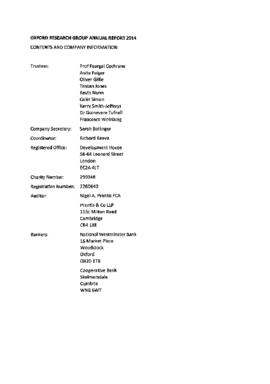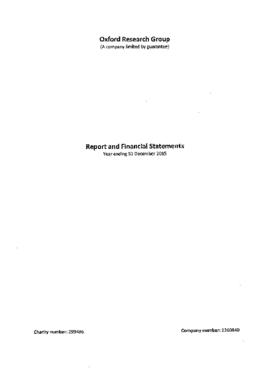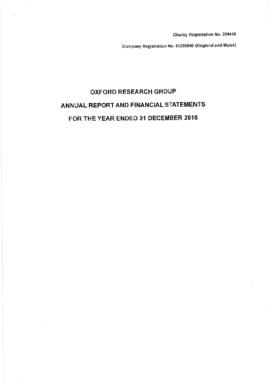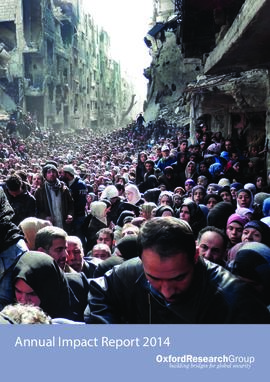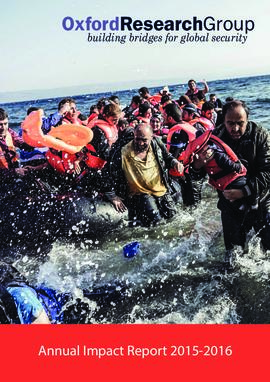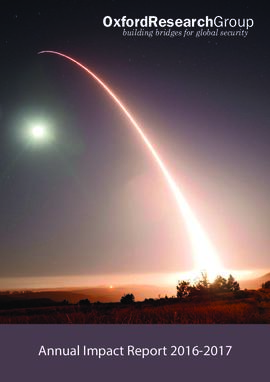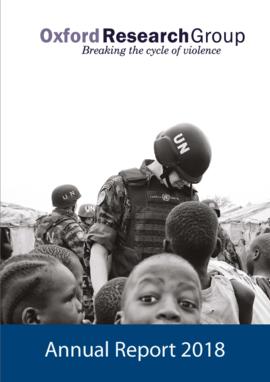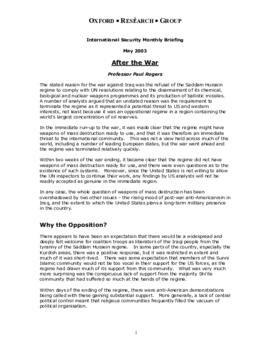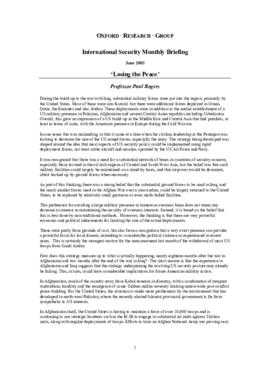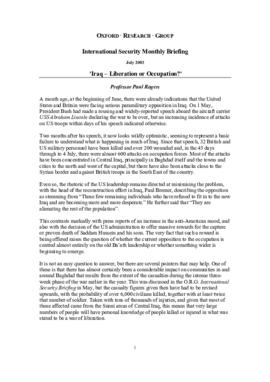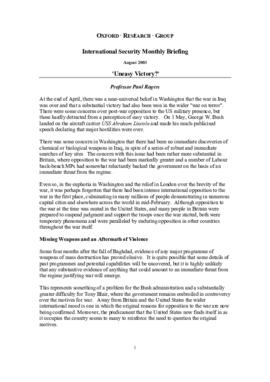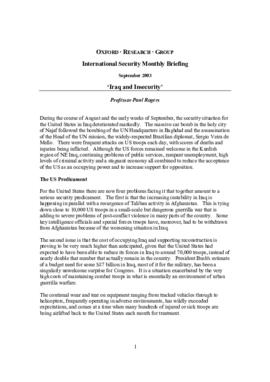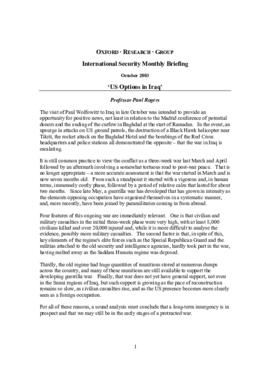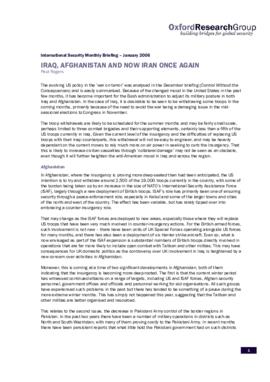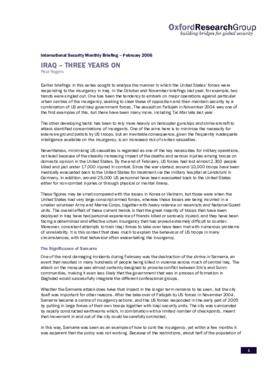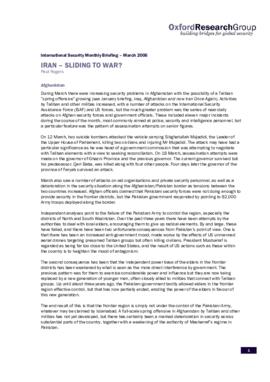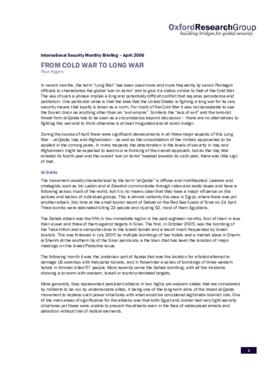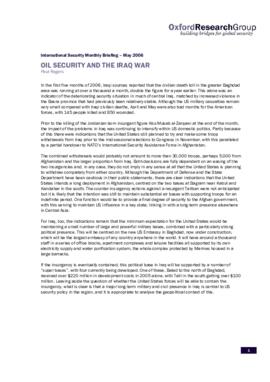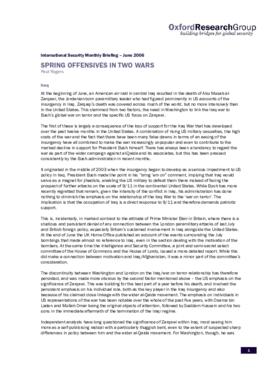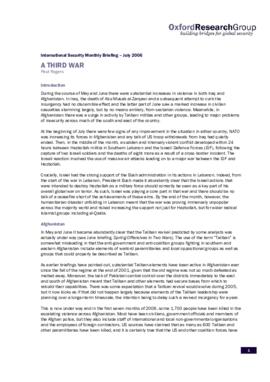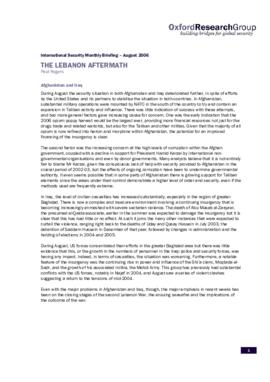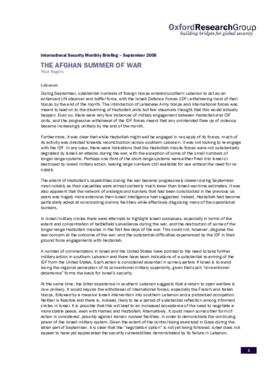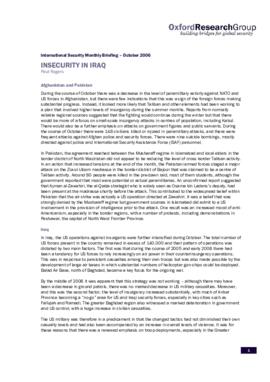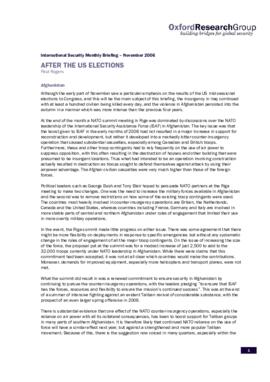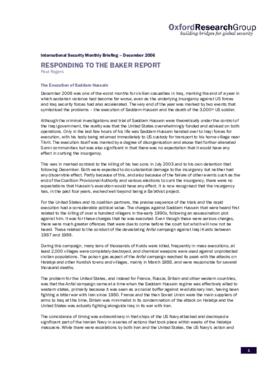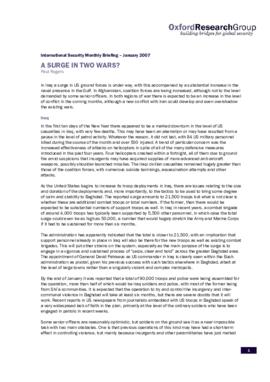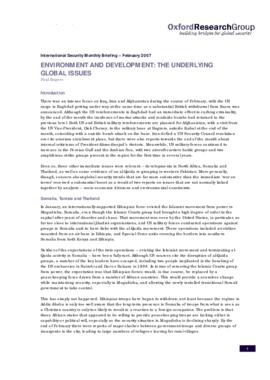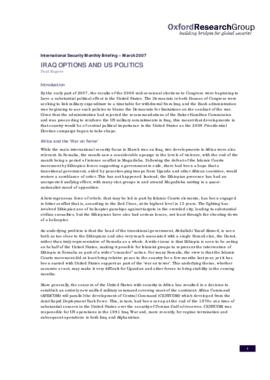Reference code
Title
Date(s)
- 2001-2020 (Creation)
Level of description
Collection
Extent, medium and format
820 document files, 48 audio files
Name of creator
Administrative history
The Oxford Research Group (ORG) was a charity, think-tank and non-governmental organisation in the UK that was active between 1982 and 2020. The group was founded by Scilla Elworthy, an anti-war activist and author, and officially incorporated as a charity in 1988. Originally based in Oxford, the ORG relocated their base of operations to London in 2006.
The work of the ORG primarily concerned research into non-violent resolutions to conflicts around the world and opening dialogue between conflicting parties in order to find and implement peaceful solutions. The ORG approached peacebuilding from a psychological perspective, with the intention of breaking the cycles of violence that they believed caused conflict in the first place. While the ORG was a secular, non-religious group, its foundation was partly inspired by the Quaker values of peace and equality, as Elworthy herself belongs to this denomination. Though the ORG was an anti-war group, they were not pacifists.
From its foundation until 2001, the work of the ORG focused on the debate surrounding nuclear weapons and disarmament, as well as dialogue between the UK and Chinese governments on security matters and how governments could move away from the security policies of the Cold War era and towards peacebuilding based on cooperation and dialogue. After the September 11th terrorist attacks on the World Trade Center in 2001, the ORG shifted its attention to the War on Terror and peacebuilding in the Middle East in order to better understand the causes and consequences of conflict in the region, with the aim of opening dialogues between the parties involved to resolve such conflict.
In 2003, Elworthy was awarded the Niwano Peace Prize for the ORG's work. Both Elworthy and the ORG were also nominated for the Nobel Peace Prize in 1988, 1989 and 1991.
Major programmes carried out by the ORG include:
- The Sustainable Security Programme
- The Strategic Peacebuilding Programme
- The Remote Warfare Programme
Projects and groups that originated from the ORG include:
- Every Casualty Worldwide
- The Oxford Process
- Peace Direct
Notable staff at the ORG included:
- Dr Scilla Elworthy
- Professor John Sloboda
- Gabrielle Rifkind
- Professor Oliver Ramsbotham
- Professor Frank Barnaby
- Professor Paul Rogers
- Paul Ingram
In 2020, the ORG could no longer operate due to funding issues.
Collecting area
Archival/Digitisation history
Immediate source of acquisition or transfer
The ORG transferred their born-digital material to the LSE Library between November 2020 and January 2021.
Description
This collection contains born-digital records created by ORG, mainly research outputs produced as part of the Sustainable Security, Strategic Peacebuilding, and Remote Warfare programmes, as well as ORG newsletters and blog articles from external contributors. Also included are podcasts and recordings of panel discussions. The majority of this material was downloaded from the ORG website and transferred to LSE Library when the organisation was wound down. The collection also includes some annual accounts and impact reports (a fuller set of annual reports is available in the ORG analogue collection).
Appraisal, destruction and scheduling
Accruals
System of arrangement
Access information
Open
Copyright and licencing
As at April 2022, all material is still In Copyright. The majority of the content has previously been made available to the public through online publication on the ORG website but you may need to seek permission from the rightsholder(s) for your intended use.
We are able to grant permission for re-use of ORG-copyright material, but some series (for example the ORG Blog) include material that is copyright of individual authors. Please contact the Archives and Special Collections team via Library.Enquiries@lse.ac.uk for advice on re-use of material in this collection.
Language of material
Script of material
Language and script notes
Physical characteristics and technical requirements
Information on originals
Existence and location of originals
Existence and location of copies
Related material
Alternative identifier(s)
Subjects
Places
People and organisations
- Oxford Research Group (ORG) (Subject)
- Elworthy, Scilla (Subject)
- Sloboda, John Anthony (Subject)
- Rifkind, Gabrielle (Subject)
- Ramsbotham, Oliver Peter (Subject)
- Barnaby, Frank Charles (Subject)
- Rogers, Paul (Subject)
- Ingram, Paul Martin (Subject)

